In our most natural states, we are the most powerful, as well as the most adaptable, the most observant, yet also the most vulnerable, susceptible, and malleable. While most can agree that a level of insecurity or discontentment is necessary for growth, the amount of time it takes for us to ascend to the next stage of growth is entirely a matter of choice. It is too common today that we simply settle for what’s comfortable, for what would hurt less, or be less stressful.
It is this stagnation that goes against the movement and change of the universe. If we still yet choose to see ourselves as a separate entity from the universe itself, then no matter how comfortable we are, life will still cause pain, stress, inconvenience, sorrow, and so on. At this point, while we still feel these pangs of growth, we can still yet choose to deny the reasons why we are experiencing them. We can choose to blame them on something other than the necessity of change. We can choose to belief these occurrences are but coincidence, and stay in stagnation.
Now, when we are identified with our current position in life, we still have this ruminating sense of separateness in the background, regardless of how much we may have learned about the higher-self, about ego, about humility, or about living. We can learn many, many things, but the end result remains that we are simply interested in the process of learning, as opposed to the subject in study. This can be related to the process of desire; it is less that we are interested in the satisfaction of desire then desire itself.
The more we learn, the more we identify with ourselves as the one who is learning or the one who is ‘gaining’ knowledge. The more knowledge we ‘gain’ the more allowance we have to speak as if we know something which someone else does not – but the fact is, we are merely admitting to ourselves that we have forgotten what we already know, that we deny the power that we have within us. We admit to ourselves, by this process; that we are unable, that we are less than, that we have not, that we are not, and we ought to work like hell to be something the we aren’t, or gain something we don’t have. We admit it and therefore, this construct of thought becomes our reality.
The truth remains that we cannot gain something we already have, nor can we become something we already are.
This admission is allowance if irresponsible behavior. We hold no accountability for ourselves or the state of our affairs. We would say, “This is just how I was raised,” or “I didn’t know any better,” or “It’s too difficult for me,” all the while perpetuating the illusion of separateness. While this list is certainly an abbreviation of the potentialities – this says, in truth, that, because of how we were raised, we don’t have to make certain choices. That, because the responsibility of knowing is too much, it’s better to simply make mistakes and be forgiven. This says that, because something requires more effort than we are comfortable exerting, its better to allow someone who is more willing to take on the task. These phrases we use to explain our inadequacy are not explanations, but excuses for our unwillingness to adhere to the twists and turns of the human experience.
This develops a sense of weakness on a deep subconscious level that is almost irreversible.
What is most interesting about this is that – in many cases – the more we might learn, the smarter we might become, we become susceptible to pride, lust, greed, willfulness, self-centeredness, and in some cases fear. All of these mask this sense of weakness, and can just as well exacerbate them.
We agree with ourselves that because we know something that others don’t or have a special title that others admire, that we are surely greater than those without such knowledge or prestige. This is still an admission of weakness – saying that being human in itself is not enough.
Now there are interesting, dualistic outlooks on the idea of weakness. We all have individual concepts of what it means. We might agree that physical strength is that which differentiates the weak from the strong. Some refer to one another’s intellectual abilities to discern weakness. There is also Willpower, Patience, Self-Control, Humility, Success, and many more; all of which shape the outer image of which others define you as. While one individual may find himself in a state of mind in which he feels weak, others may still look to him as strong. There are even those who say strength lies in the ability to accept or admit weakness.
Surrender, as some would call it, is not always looked upon as giving up, or quitting. Surrender can be realized as, not so much of the self, but of a mindset you once held so fervently. You as an individual have been defeated by your own stubbornness. As you stand, have cast yourself into a downward spiral of failure and remorse, and now knowing that the way you have been thinking, or behaving, no longer serves you in the way you believed it did – must give it up. The change that comes from this surrender may scare you – and that fear can very well develop into its own weakness, becoming the potentiality to fail overcoming it.
Fear will cripple you. Interestingly enough, The fear of weakness or failure can be just as debilitating as the desire to be strong. What motivates the desire to be strong better than the fear of being, or remaining, weak? You cannot separate these two ideas. And what is the desire to be strong other that the desire to be better than, to assume you are worthy or deserving of – and what does that give you but a yet greater sense of separation.
What I fear most, is that in this collective growth of consciousness, we find spiritual development as a strength, as something to be admired or worshiped, something that is achievable or attainable. In my personal understanding, Spirituality has it’s foundation in humility; in the ability to be humble, and not use it as a personal endeavor for grandiosity.
So now, with this broad idea of what weakness may be, I present you with something a bit closer to the reality of it;
The idea or the necessity to be stronger, more successful, or more loving and caring, or more calm and composed – or more happy and accepting if you chose to see strength that way – is absolutely opposed to the virtue itself. To say I need to be greater, faster, smarter, kinder, happier – completely discredits the current state of yourself. You, in your current state, in your most natural state – without carrying the past in your memories, without feeding hopes to your future – here and now, you are what strength attempts to define itself as.
About the author Michael Fantano:
With a myriad of multifarious written works, Michael lives to discover the Truth as much as he yearns to spread it. Becoming greatly influenced by many authors, philosophers, and spiritualists, he found his passion as an author and fervent seeker. This passion of his stems from an innate desire to help people, of which he most commonly utilizes spending time with the mentally ill as an outlet for. Michael is in the process of writing a Novel series, as well as a Self-Transformation guide-book. You can find him at: http://omverse.blogspot.com




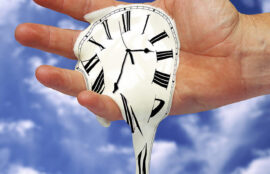

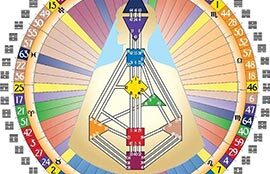

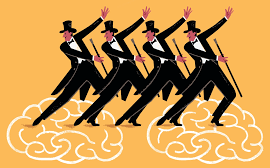
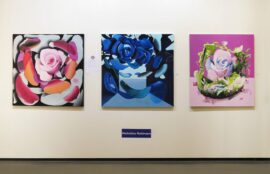


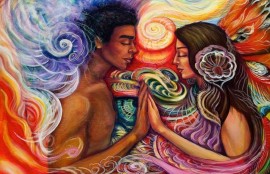

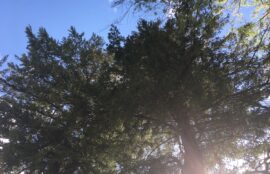
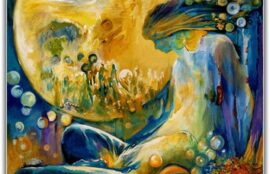





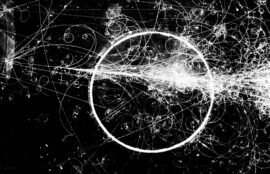

Sorry, the comment form is closed at this time.